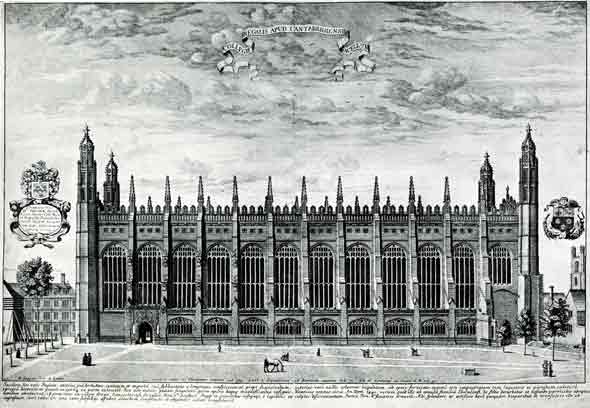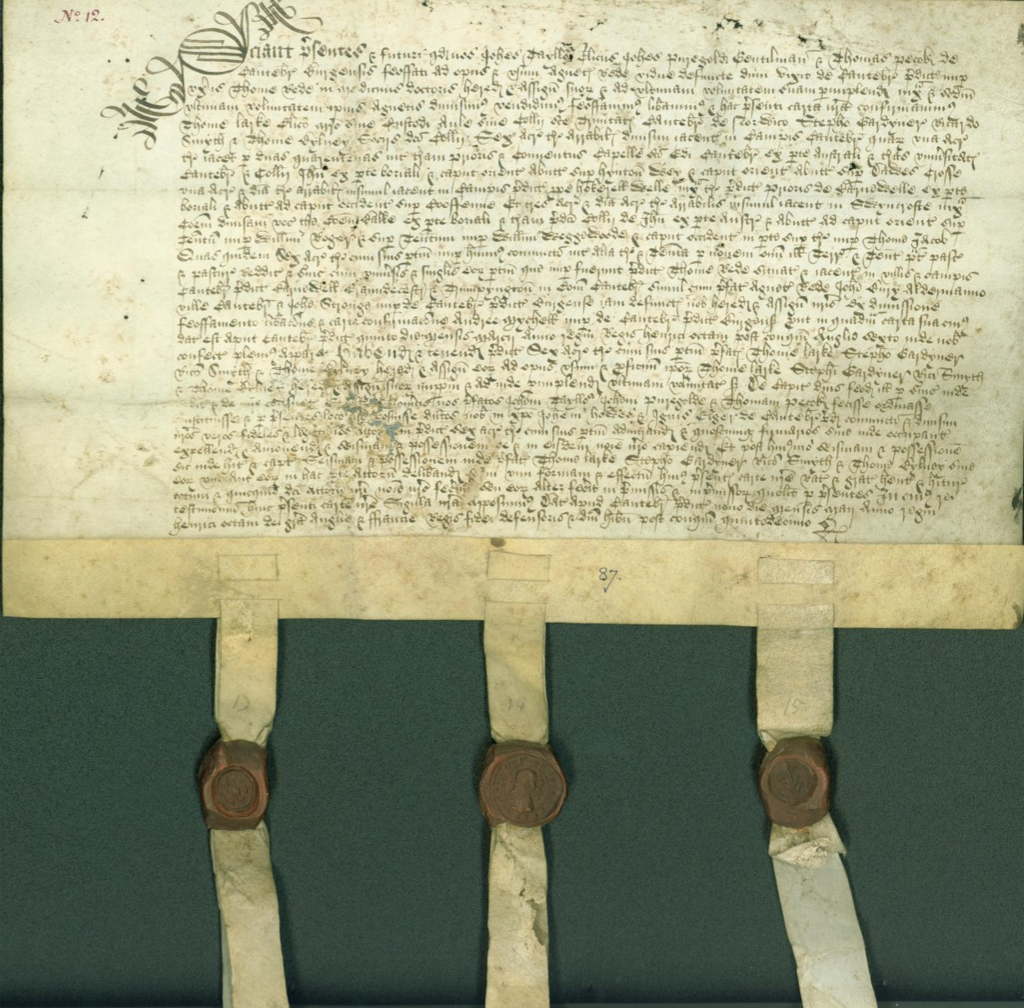
King’s College Chapel South Front by David Loggan, 1690
The Early Modern period of the College’s history is dominated by the likes of Stephen Gardiner, Thomas Preston, and Thomas Bilney, but there is another character from that period who deserves a little attention. Thomas Larke was the College’s 12th master, immediately preceding Stephen Gardiner. Larke was an exceptional man. He rose from humble origins, being the son of an innkeeper at Thetford, to become one of the chaplains of Henry VIII and Cardinal Wolsey’s confessor, and he aided in brokering peace with France.
Little is known about him prior to 1507 when he became one of Henry’s chaplains. Soon after entering Henry’s service, he was charged with supervising the business side of the construction works at King’s College. He was possibly made a fellow of Kings in 1508/9, and by 1511, he was promoted to official surveyor of the site. Around this time, he had also become Cardinal Wolsey’s confessor. Interestingly, his sister, Joan Larke, was Wolsey’s mistress. She bore Wolsey two children before he married her off to a Cheshire gentleman.
Rather refreshingly, it appears Larke was a genuinely good man. While Larke was living in Cambridge supervising the works at King’s, he became friendly with Desiderius Erasmus, who was lodging near him. In a letter, Erasmus remarked that Larke was “the most civilised and open-hearted” of all he had known in England. He also received praise from Wolsey’s chief agent in Rome who paid tribute to his modesty and virtue.
Once the building work was completed at King’s, he was employed in a similar capacity over the work being carried out at the palace of Bridewell between 1515 and 1517. Larke became Master of Trinity Hall sometime between 1517 and 1520, around the same time he was made Archdeacon of Sudbury. He held that position from 1517 to 1522, and from 1522 to 1528 he was the Archdeacon of Norwich. A year after he resigned as Master from Trinity Hall in 1525, he was assisting the work at Wolsey’s college in Oxford, now known as Christ’s Church.

THAR/8/3/2/3: Grant of John Tayllour, John Puregold, and Thomas Pecok to Thomas Larke, Master of Trinity Hall and the Fellows of Trinity Hall of 6 acres of arable land in the Fields of Cambride, 1523
Regrettably, very little is known about his time as master other than Stephen Gardiner was one of his fellows. It is unlikely Larke ever lived in College, because in 1524-5 his residence in London was the location of secret meetings between Cardinal Wolsey and the ambassador of France, which led to a peace agreement with France in 1525. That year he resigned his Mastership, and he began receiving a pension from the King of France as a reward for his services. He died in 1530.
References
Alumni cantabrigienses : a biographical list of all known students, graduates and holders of office at the University of Cambridge, from the earliest times to 1900. Compiled by John Venn and J.A. Venn. Cambridge : University Press, 1922-54.
Cobban, Alan. The King’s Hall within the University of Cambridge in the Later Middle Ages. Cambridge : Cambridge University Press., 1969.
Crawley, Charles. Trinity Hall: The History of a Cambridge College, 1350-1975. Cambridge: Cambridge University Press, 1976.
Erasmus, Desiderius. The Epistles of Erasmus From His Earliest Letters to His Fifty-first Year, Arranged in Order of Time, vol 2. Translated by Francis Morgan Nichols. London : Longmans, Green, 1904.
Saltmarsh, John. King’s College Chapel. Cambridge: King’s College, 1967.